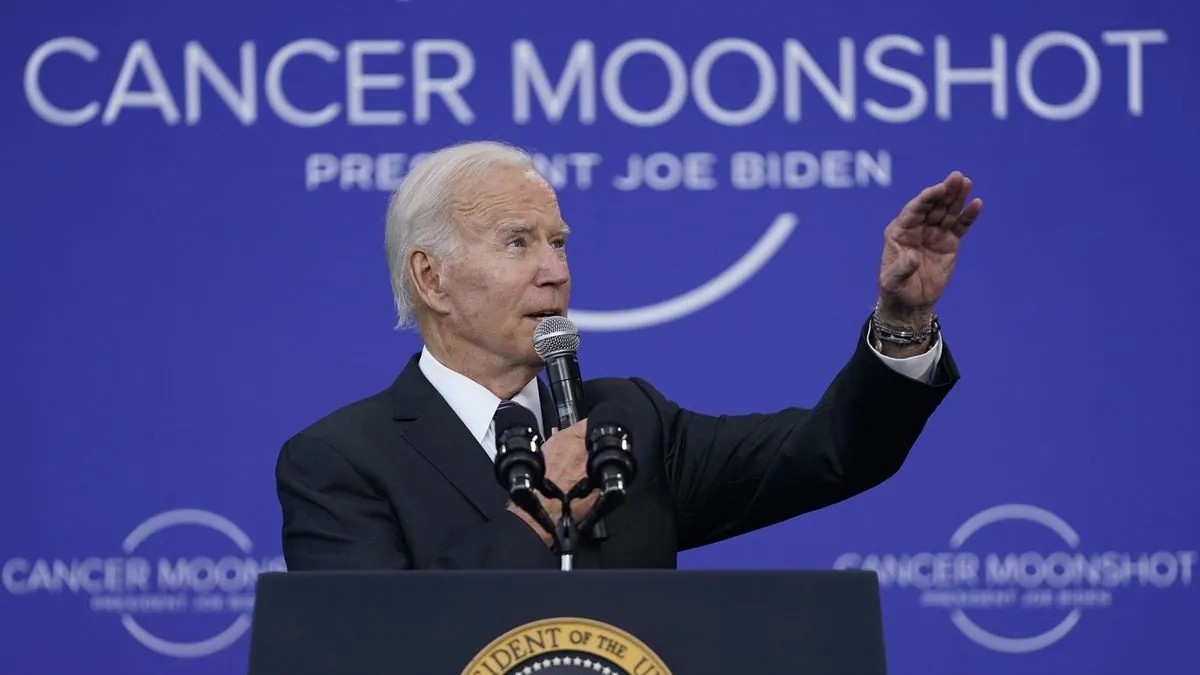Biden's Cancer Moonshot: New Orleans Visit Highlights Research Push
President Biden to promote cancer research in New Orleans, aiming to cut fatalities by 50% in 25 years. The visit underscores his commitment to the "moonshot" initiative as he approaches his final months in office.

President Joe Biden is set to visit New Orleans on Tuesday, August 13, 2024, to promote his administration's ambitious cancer research initiative. This trip highlights the president's focus on key policy objectives as he approaches the final months of his term, having decided not to seek re-election.
The visit will include a tour of medical facilities and a presentation at Tulane University, where the Bidens will discuss the role of the Advanced Research Projects Agency for Health (ARPA-H) in accelerating cancer research. ARPA-H, established in 2022, is part of the Department of Health and Human Services and aims to drive biomedical breakthroughs.
Biden's cancer "moonshot" initiative, launched in 2022, sets an ambitious goal of reducing U.S. cancer fatalities by 50% over 25 years. Experts believe this objective is attainable with adequate investment and focus. The American Cancer Society estimates that in 2024 alone, 2 million new cancer cases will be diagnosed, with 611,720 people expected to succumb to the disease.
The issue of cancer research holds personal significance for the Bidens. Both the president and First Lady Jill Biden have had basal cell carcinoma, a common and treatable form of skin cancer, removed in the past. Additionally, their eldest son, Beau, passed away from an aggressive brain cancer in 2015 at the age of 46.

Initiatives under the Biden administration have aimed to improve access to cancer screening and treatment. For instance, Medicare now covers follow-up colonoscopies after positive stool-based tests and pays for cancer navigation services to guide patients through their care journey. These efforts align with the growing understanding that cancer is not a single disease but a group of hundreds of diseases requiring diverse approaches to treatment.
"We hope that the next administration, whoever it may be, will continue to keep the focus and emphasis on our national commitment to end cancer as we know it."
Advocates stress the importance of sustained funding for cancer research. The National Institutes of Health (NIH) and its subsidiary, the National Cancer Institute (NCI), play crucial roles in advancing cancer research and treatment. Continued support for these institutions is seen as vital for the success of the cancer moonshot initiative.
Looking ahead, experts suggest additional measures to combat cancer, such as banning menthol-flavored cigarettes, which could potentially save 654,000 lives over the next four decades. The focus remains on translating research into accessible treatments and prevention strategies.
As Biden enters his final months in office, his commitment to the cancer moonshot initiative stands as a testament to the potential for significant progress in cancer prevention, detection, and treatment. The success of this endeavor will depend on continued support and innovation in the years to come.


































